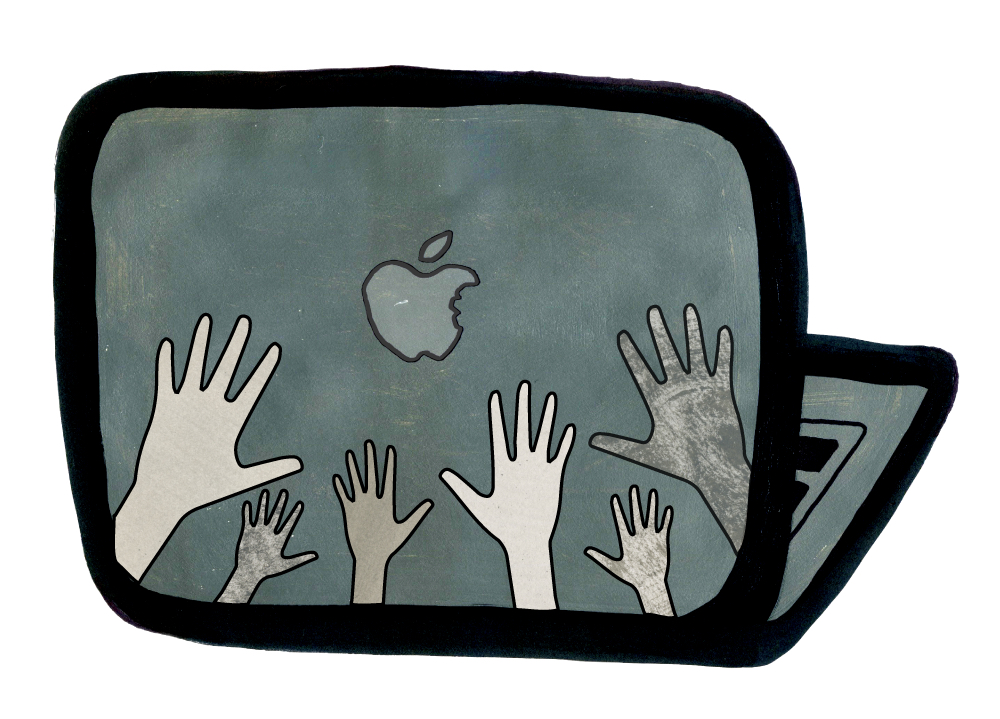“I thought nothing was unacceptable as long as I could close the door and have some small space to myself.”
This is an internet post about a startup founder who recently enrolled in social assistance programs, namely food stamps and Medicaid.
“I went to a building in Brownsville last week that had padlocks on the doors to people’s rooms and there was shit all over the toilet and there were ten people living in a basement with a connecting hallway and I realized I do have standards.”
This was over dinner.
“It has to be better than that. It’s all about what the threshold is for you. It’s also just a really really high crime rate in terms of shootings and muggings,” he stops. “OK, so what do you want to know?”
We’re talking on the condition of strict anonymity, including elimination of identifying details. The founder in question will be referred to throughout as Anonymous_Founder. The condition of anonymity was agreed to because this article might produce some negative sentiment toward him that could have tangible effects on his livelihood. Given that he’s on food stamps and looking at dungeony apartments, he can’t afford bad PR for his company or a re-examination of his benefits by the authorities, he said. We’ve afforded him anonymity, but not lightly.
Anonymous_Founder runs a startup based in Brooklyn and he’s out of money.

Two years ago he took his savings, cobbled together some private funding and began to work on his idea. It’s an app that, while profit is a goal, also contains what Anonymous_Founder believes to be a greater social good. It has yet to get traction. It’s been changed — iterated — and Anonymous_Founder thinks there’s a chance yet that it will catch on and succeed.
“I told myself I’d spend that money to see if the world was ready to have this built,” Anonymous_Founder said. “I was optimistic in that I figured I was probably going to blow through funds and I’d say, ‘OK, zero is zero, let’s go do something else.’ And I heard from people that when you’re at zero you don’t feel like you’re at zero and it’s true. Here I am at zero but I have a great company, I have great people I’m working with, I am making a minimum wage, but why would I give up if I’m still in range?”
The company has some money, but every dollar Anonymous_Founder takes out of it shortens the runway.
He had been paying himself nothing, but his personal finances are now, as he puts it, “done.” He explained that he tried to pay himself $1,000 a month, but the benefits office didn’t accept that he was a full-time worker getting paid less than minimum wage. That’s either a part-time job or an illegal working arrangement. For part-time workers, the benefits office (New York Human Resources Administration) has mandatory work training programs. So Anonymous_Founder took a raise to minimum wage and full-time status.
“In mid-November I had no idea how the benefits system worked,” he said. “All I knew was that I was a couple hundred dollars away from being completely broke. So I just walked into the benefits office to see what they had available and if it could help me out, without having any idea if it would at all.”
###
Anonymous_Founder described the benefits office as “bleak.”
“A lot of concrete. A lot of going from one waiting room to another. The first time I was there I spent probably ten hours in different waiting rooms. There’s so many institutions, some of which are government some of which are nonprofit. Most are just concrete waiting rooms with plastic chairs and no windows and no clocks. Your phone dies after a couple hours, you have no idea how long you’re going to be there. While you’re there you see people flipping out, screaming fits, shouting at the people that work there, security officers having to carry people out.”
I asked if he felt weird being in there. Anonymous_Founder is a college graduate, has a master’s degree and a Ph.D. in Computer Science. He comes from a solidly middle-class family. He could pretty easily move to Silicon Valley and find a job paying well into the six figures.
“It felt strange. It felt strange because in the back of my mind I knew that, as opposed to many of the other people in there, it was personal decisions in my life that led me in there. I made those decisions that I knew could leave me totally and utterly broke at some point.”
Eventually, he sat down with a case worker and explained his situation. He wasn’t told what the process would be like beyond a list of appointments you have to keep and places you have to go.
“One of the things that was fast was food stamps,” he said. “They made sure you weren’t going to starve to death, which is cool. By the end of the next day I had a card with food stamps on it.”
That gave him a chunk of money to eat with for the time being and then a monthly SNAP account of $195. He doesn’t know how they came up with those numbers or what data they’re using. There are some restrictions on the food you can buy. No hot food or prepared food. The idea is that you’re making prudent purchases and cooking at home without what you eat being entirely dictated to you by the state.
Did people give him looks at the benefits office? What are you doing here? Is that a peacoat?
“None. I think the only person that felt weird was me. It’s one of those things where if you see people looking at you it’s because you feel they should be. Well, I mean, people look at me weird all the time but it has nothing to do with the EBT card,” he said with a smile. “The case workers, they really want to help me. They’re very polite and I’ve always approached them with respect.”
The people who do seem to care are other people in the New York startup scene.
Anonymous_Founder didn’t feel his situation was anything to hide and had been open about his experience with others. But he’s rethinking that, now. So much of this startup world, he says, has a fake-it-till-you-make-it mentality. Investors aren’t trying to give money to people with struggling companies, right? So everyone’s conversations are good, everyone’s posts are charged up. Looking at the startup world, he says, is like looking at a highlight reel of people’s successes all the time. Other startupy folks are taken aback by his situation, but Anonymous_Founder thinks he might not be the only one in the field quietly on social assistance.
“Sometimes I’ll see a look of pity come over people’s eyes,” he said. “It matters to me a lot what other people think. A part of society and our culture is conforming to what the general populous expects. I personally don’t believe anyone who says, ‘I don’t give a shit what anyone thinks.’ It’s just been a process of not letting it affect my decisionmaking.”

Another look that might come over people’s eyes? Anger. Why should the state be subsidizing his choices?
“I would say look at my bank account, look at the quality of life I have and my day-to-day and you will see there are criteria on these services for a reason and I fit them. I’ve worked for a long time, I’ve paid taxes. The point of these services is to be there for a point in your life when you need them and this is a point in my life where I need them. Using the services is not the same as abusing the services.”
That’s Anonymous_Founder’s definition of social assistance, but it’s not necessarily everyone’s, and it’s not a thing which has an unmovable definition.
Different societies and even different presidential administrations have different definitions of the purpose of social assistance. Your reaction to this story might be a Rorschach on this issue as much as anything else.
Northern Europeans, might (simplifying here) see the point of social welfare in a Marxist way: knowing that you won’t suffer if you leave your job allows the worker to better look for work that they enjoy doing and suits their interests, rather than be locked into a terrible job under the pain of the economic whip of poverty.
An American conservative, like presidential candidate Ted Cruz, would view the purpose of welfare as only an absolute last resort before people die or become seriously damaged by poverty.
“You are not doing anyone a favor by creating dependency, destroying individual responsibility,” his website’s position section reads. “55 years ago, when my dad was a penniless teenage immigrant, thank God some well-meaning bureaucrat didn’t put his arm around him and say let me take care of you. Let me give you a government check and make you dependent on government.”
Both ends of the spectrum have their supporters, and so does every point in between. Why should we have to work and pay taxes so Anonymous_Founder may continue working on the project he chose to do? But at the same time, maybe Anonymous_Founder is a case study in exactly the type of people we’d like our social assistance programs to support: people actively working, trying to create something of value for society. WhatsApp founder Jan Koum signed his $19 billion acquisition deal with Facebook on the steps of the North County Social Services office in Mountain View, where he’d collected food stamps while working on the messaging service.
###
Back at the interview, Anonymous_Founder was getting serious.
“It’s not all euphoric,” he said, seemingly earnestly. “I have issues with depression. It’s like four to six weeks up and then two or three days down, where [the] outlook is just terrible, where anything you do is hopeless and nothing can change that. Right before I went into the welfare office there had been a lot more down days than there had been up days. I feel like everyone gets depressed and I’m lucky because I’ve found my own rhythm. Yeah, you might be in bed for three days but don’t make any decisions while you’re in there, because it’ll pass. And don’t beat yourself up too much for being in there. Depression is hardcore.”
Anonymous_Founder has four years of a bachelor’s, three years of a master’s and five years of a Ph.D. on his back. The expectation of living a grown-up life is heavy.
“Instead of that, I’m doing this, which is just a massive opportunity cost. I probably wouldn’t have done [this] if it was a startup just to get rich, I would’ve tapped out a long time ago. But because it does have this social aspect I really believe in, that’s why I keep going.”
Anonymous_Founder looked down at the remains of his tacos.
“The other night I had a dream that I died and right before [it happened] I was like, ‘Holy shit, I’m dying. Oh well, I had a good run.’ I wake up every day and work on a problem that affects everyone and as long as I have that purpose, I’m OK. I could be working on something else and making more money but I wouldn’t have that purpose.”







